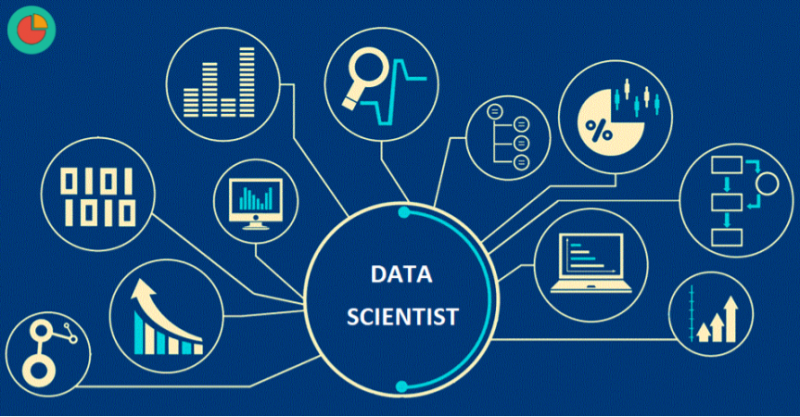 Dell EMC, a part of Dell Technologies, enables organizations to modernize, automate and transform their data center using industry-leading converged infrastructure, servers, storage and data protection technologies. This provides a trusted foundation for businesses to transform IT, through the creation of a hybrid cloud, and transform their business through the creation of cloud-native applications and big data solutions. Dell EMC services customers across 180 countries – including 98 percent of the Fortune 500 – with the industry's most comprehensive and innovative portfolio from edge to core to cloud.
Dell EMC, a part of Dell Technologies, enables organizations to modernize, automate and transform their data center using industry-leading converged infrastructure, servers, storage and data protection technologies. This provides a trusted foundation for businesses to transform IT, through the creation of a hybrid cloud, and transform their business through the creation of cloud-native applications and big data solutions. Dell EMC services customers across 180 countries – including 98 percent of the Fortune 500 – with the industry's most comprehensive and innovative portfolio from edge to core to cloud.
As we all know that data scientist career is one of the hottest jobs in IT. What’s more, it’s the best job you can get, according to data from Glassdoor.
Generally, Data science is important to nearly every company. Recruiters are searching for skilled people. But the skills will vary across businesses and industries. Moreover, certifications are a great way to gain an edge. As they allow you to hone niche skills that are hard to find in your desired industry. Besides, it’s also a way to back up your skills. So recruiters and hiring managers know what they’re getting if they hire you.
Moreover, you’re looking to earn a certification from an accredited university. Then again some experience as a new grad along with the skills required to be a data scientist. Basically, Dell EMC offers a data science associate certification. That promises a hands-on, practitioner approach. That describes as the “industry’s most comprehensive learning and certification program.” As soon as you pass this data scientist certification, you’re considered “Proven Professional,”. Now it is clear to managers and recruiters that you have the necessary skills they want in a data scientist. Hence, it offers an associate level and a specialist level which is more advanced.
Dell EMC Certification Course Overview
This course provides practical foundation level training that enables immediate and effective participation in big data and other analytics projects. It establishes a baseline of skills that can be further enhanced with additional training and real-world experience. The course provides an introduction to big data and a Data Analytics Lifecycle Process to address business challenges that leverage big data. It provides grounding in basic and advanced analytic methods and an introduction to big data analytics technology and tools including MapReduce and Hadoop. The course has extensive labs throughout to provide practical opportunities to apply these methods and tools to real-world business challenges and includes a final lab in which students address a big data analytics challenge by applying the concepts taught in the course in the context of the Data Analytics Lifecycle.
Highlights
- Immediately participate and contribute as a Data Science Team Member on big data and other analytics projects by
- Deploy the Data Analytics Lifecycle to address big data analytics projects
- Reframe a business challenge as an analytics challenge
- Apply appropriate analytic techniques and tools to analyze big data, create statistical models, and identify insights that can lead to actionable results
- Select appropriate data visualizations to clearly communicate analytic insights to business sponsors and analytic audiences
- Use tools such as: R and RStudio, MapReduce, Hadoop, in-database analytics, Window and MADlib functions
- Explain how advanced analytics can be leveraged to create competitive advantage and how the data scientist role and skills differ from those of a traditional business intelligence analyst
Best fit candidates and Prerequisites
Managers of business intelligence, analytics, big data professionals, data and database professionals adding big data analytics to their skills, recent college graduates and graduate students in related discipline looking to move into Data Science.
A strong quantitative background with a solid understanding of basic statistics, as would be found in a statistics 101 level course. Experience with a scripting language, such as Java, Perl, or Python (or R). Many of the lab examples taught in the course use R (actually RStudio), which is an open source statistical tool and programming language, Experience with SQL
Subject outline in a broadway
1. Introduction to Big Data Analytics
2. Data Analytics Lifecycle
3. Review of Basic Data Analytic Methods Using R
4. Advanced Analytics - Theory, And Methods
5. Advanced Analytics - Technologies and Tools
6. Operationalizing an Analytics Project and Data Visualization Techniques
Detail certification syllabus can be found at the following link.
Dell EMC DEA-7TT2 Certification Exam Syllabus
Advanced data analytics capabilities are just too critical for staying competitive, says David Foote, co-founder, chief analyst and chief research officer of Foote Partners. They've expanded in popularity from a few industries to nearly every industry and market. And there is the Internet of Things, the next critical focus for data and analytics services. IDC is predicting a 30 percent CAGR over the next five years, while McKinsey is expecting IoT to have a $4 trillion to $11 trillion global economic impact by 2025 as businesses look to IoT technologies to provide more insight.
Dell EMC Data Science certification is quite important to open up new vistas of opportunities in your professional career. It all begins with credibility. The moment your prospective employer will see your resume, Dell EMC certification on EMC Data Science Associate status will grab his eyeballs, without any doubt. EMC certification helps win better job prospects in the industry and even makes you comparatively superior to other candidates. Besides, you might even grab higher salaries to those who are not certified.
